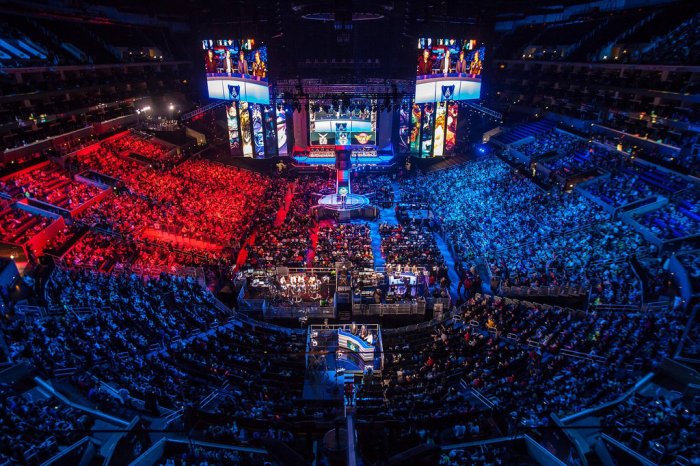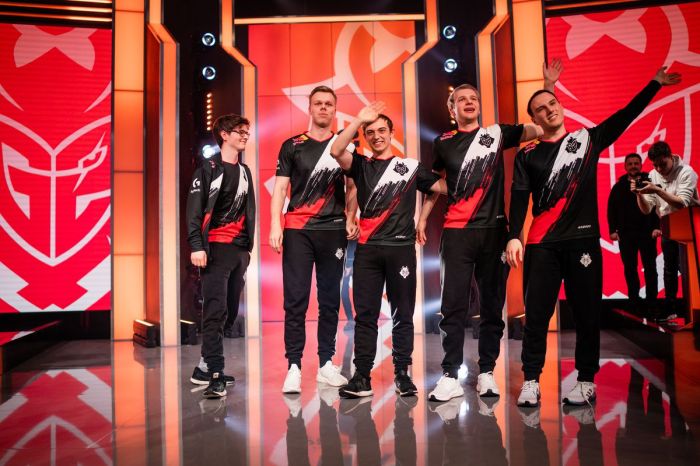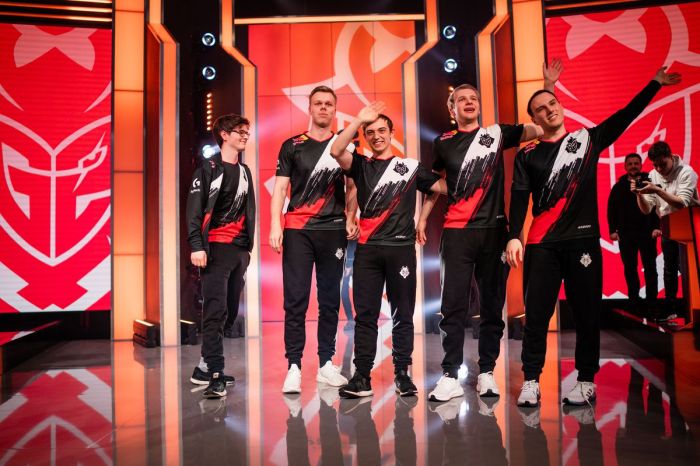Gaming leagues are exploding in popularity, transforming the way we experience competitive gaming. From casual weekend warriors to professional esports athletes, millions participate in these organized competitions, spanning diverse genres like MOBAs, FPS, and strategy games. This exploration delves into the multifaceted world of gaming leagues, examining their structure, organization, player development, technological underpinnings, and the business behind the booming esports industry.
We’ll cover everything from the nuts and bolts of running a league – recruiting teams, managing tournaments, and securing sponsorships – to the crucial role of technology in ensuring fair play and delivering captivating broadcasts. We’ll also explore the evolving business models driving league success and the importance of fostering a vibrant community around these competitive events. Get ready to level up your understanding of the gaming league phenomenon!
Types of Gaming Leagues

Gaming leagues are a vibrant part of the esports landscape, offering structured competition for players of all skill levels, from casual gamers to professional athletes. They vary widely depending on the game, the players’ skill, and the league’s organization. Understanding these differences is key to appreciating the diverse world of competitive gaming.
Categorization of Gaming Leagues by Genre
Gaming leagues are primarily categorized by the game genre they encompass. This categorization significantly impacts the league’s structure, rules, and overall gameplay. Key differences in game mechanics lead to diverse competitive formats.
MOBA Leagues
MOBA (Multiplayer Online Battle Arena) leagues, such as those for League of Legends or Dota 2, typically feature team-based, strategic gameplay. These leagues often involve a tiered ranking system, starting with amateur leagues and culminating in professional leagues with significant prize pools and sponsorships. Matches are usually best-of-three or best-of-five series, emphasizing strategic depth and team coordination. Rules often focus on fair play, banning specific items or champions to maintain balance, and preventing exploits.
FPS Leagues
First-Person Shooter (FPS) leagues, encompassing games like Counter-Strike: Global Offensive (CS:GO) and Valorant, emphasize individual skill and quick reflexes alongside teamwork. These leagues can range from casual community tournaments to highly competitive professional circuits with international events. Rules generally focus on preventing cheating, ensuring fair play, and defining map selections and weapon restrictions. Match structures are often best-of-one or best-of-three, reflecting the faster pace of the games.
Strategy Leagues
Strategy game leagues, which might include titles like StarCraft II or Age of Empires IV, demand a high level of strategic thinking, resource management, and tactical decision-making. These leagues can have complex rule sets focusing on fair play and preventing exploits of game mechanics. Matches often involve longer play times than MOBAs or FPS games, with professional leagues frequently broadcasting these matches with expert commentary to break down complex strategic decisions.
Professional vs. Amateur Leagues
The primary distinction between professional and amateur leagues lies in the level of competition, prize money, and organizational structure. Professional leagues are highly organized, with established rules, sponsorships, and significant prize pools. Players are often contracted, receiving salaries and benefits. Amateur leagues, conversely, are often community-based, with smaller prize pools or none at all, and less formal structures.
While both types of leagues offer competitive experiences, the level of dedication and commitment required differs significantly. Professional leagues demand full-time dedication, while amateur leagues accommodate players with other commitments.
League Type Comparison Table
| League Type | Game Genre | Structure | Key Differences |
|---|---|---|---|
| Professional MOBA | MOBA (e.g., League of Legends) | Tiered ranking, franchised teams, large prize pools, broadcast events | High level of competition, full-time players, significant financial investment |
| Amateur FPS | FPS (e.g., Counter-Strike) | Community-based tournaments, smaller prize pools, less formal structure | Lower level of competition, part-time players, limited financial investment |
| Professional Strategy | Strategy (e.g., StarCraft II) | Individual and team competitions, international events, high prize pools | Emphasis on strategic depth and long-term planning, high skill ceiling |
| Amateur MOBA | MOBA (e.g., Dota 2) | Ladder system, casual tournaments, minimal prize money | Focus on individual improvement and community engagement |
League Organization and Management

Successfully running a gaming league requires meticulous planning and execution across several key areas. From recruiting talented players to securing sponsorships, every aspect contributes to the league’s overall success and longevity. This section delves into the operational, organizational, and financial strategies crucial for building and maintaining a thriving gaming community.
Team Recruitment and Management
Effective team recruitment is paramount. A strong player base forms the foundation of any successful league. This involves actively reaching out to potential teams through online communities, social media platforms, and gaming forums. League organizers should clearly define eligibility criteria, team sizes, and registration processes. Once teams are recruited, ongoing management is vital.
This includes facilitating communication between teams, addressing disputes fairly, and ensuring adherence to league rules and regulations. Regular check-ins and feedback mechanisms can strengthen team relationships and improve overall league participation. For example, a Discord server dedicated to the league can be a central hub for announcements, team discussions, and conflict resolution.
Tournament Organization, Gaming leagues
Organizing tournaments requires careful planning and execution. A well-structured tournament schedule, considering player availability and time zones, is essential. This might involve a round-robin format for regular season play followed by a playoff bracket. Venue selection, whether physical or virtual, depends on the league’s scale and resources. A physical venue requires considerations such as space, equipment, and accessibility.
For online tournaments, a reliable platform with robust anti-cheat measures is crucial. Clear communication with players regarding the tournament rules, schedule, and format is paramount. Regular updates and announcements via email, social media, or in-game notifications can maintain player engagement and minimize confusion.
Financial Management of a Gaming League
Securing funding is a crucial aspect of league management. Sponsorship acquisition can provide significant financial support. Organizers should develop compelling sponsorship packages highlighting the potential benefits for sponsors, such as brand visibility and access to a dedicated gaming audience. Prize pools, another significant expense, should be determined based on the league’s budget and sponsor contributions. Diverse revenue streams are recommended to ensure financial stability.
This could include entry fees, merchandise sales, advertising revenue, and crowdfunding. Careful budgeting and financial tracking are necessary to ensure the league’s financial health and sustainability. For example, a budget spreadsheet detailing projected income and expenses can be invaluable for effective financial management.
Establishing a New Gaming League: A Step-by-Step Guide
Launching a new gaming league requires a structured approach. First, define the game, target audience, and league format. Next, develop a comprehensive business plan outlining the league’s goals, target market, and financial projections. Then, secure necessary resources, including funding, a suitable platform, and a team of administrators. Establish clear rules and regulations, including player conduct, tournament formats, and dispute resolution processes.
Promote the league through targeted marketing efforts, utilizing social media, gaming communities, and relevant online platforms. Finally, launch the league with a well-planned inaugural season and continuously gather feedback for ongoing improvements. For instance, a successful launch might involve a series of smaller tournaments to build anticipation before the main league begins.
Popular Questions
What are the common prize pools in gaming leagues?
Prize pools vary wildly depending on the game, league size, and sponsors. Some smaller leagues might offer a few hundred dollars, while major professional tournaments can have prize pools reaching millions.
How do I find a gaming league to join?
Check out online platforms like Discord, Reddit communities dedicated to specific games, and esports websites that list upcoming tournaments and leagues. Many leagues also advertise on social media.
What are the legal aspects of creating a gaming league?
You’ll need to consider things like liability waivers, rules and regulations, and potentially trademarking your league’s name. Consulting with a legal professional is advisable, especially for larger leagues.
How important is streaming for a gaming league’s success?
Streaming is incredibly important for visibility and attracting sponsors. High-quality streaming increases viewership, which translates to more sponsorships and a larger fanbase.
